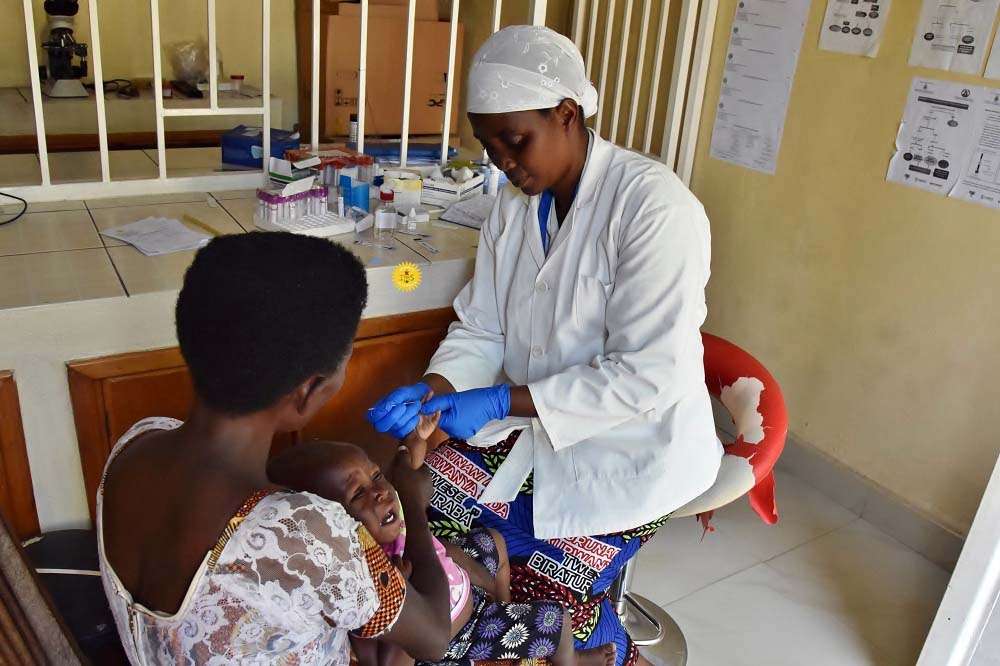In the latest Data released by the United Nations in its report on Women’s, Children’s, and Adolescents’ Health, there is a backslide which shows that an estimated 25 million children were un- or under-vaccinated in 2021 – 6 million more than in 2019 – increasing their risk of contracting deadly and debilitating diseases. Millions of children missed out on school during the pandemic, many for more than a year, while approximately 80% of children in 104 countries and territories experienced learning-loss because of school closures. Since the start of the global pandemic, 10.5 million children lost a parent or caregiver to COVID-19.

With the Covid-19 pandemic at hand and cut on resources which has affected the progress that had been made in expanding health services to the rural and most vulnerable communities, it only means that a child born in a low-income country has an average life expectancy at birth of around 63 years, compared to 80 in a high-income country. This devastating 17-year survival gap has changed little over recent years. In 2020, 5 million children died even before the age of 5, mostly from preventable or treatable causes. Meanwhile, most maternal, child, and adolescent deaths and stillbirths are concentrated in just two regions – sub-Saharan Africa and South Asia.
It is also noted that a woman in sub-Saharan Africa has around a 130 times higher risk of dying from causes relating to pregnancy or childbirth than a woman in Europe or North America. Coverage of antenatal care, skilled birth attendance, and postnatal care is far from reaching all women in low- and middle- income countries, leaving them at elevated risk of death and disability.
Despite achieving a reduction in maternal mortality of 39 per cent between 2000 and 2017, Sub-Saharan Africa still accounted for more than two-thirds (68 per cent) of global maternal deaths annually, and 53 per cent of under-five child mortality. In 2021, six in seven new HIV infections among adolescents aged 15– 19 years are among girls in sub-Saharan Africa.
“At the core of our unkept promise is the failure to address the gaping inequities at the root of global crises, from the COVID-19 pandemic to conflicts and the climate emergency. The report describes the impacts of these crises on women, children and adolescents, from maternal mortality to education losses to severe malnutrition,” said Antonio Guterres, United Nations Secretary-General.
Even though these inequities have been exacerbated by Covid-19, where several countries in Africa have experienced severe disruptions in essential health services, increase in sexual violence, teenage pregnancies and school closures, it is evident, now more than ever, to shift our focus and see how we can better advocate for the youth needs, to continue investing in health services, so as to deal with all epidemics and pandemics through re-imagining our health systems so as truly reach every woman, child, and adolescent, no matter who they are or where they live.
As we re-focus, this is also a call to have a view of what “Common Good” entails. Cura Personalis one of AJAN’s (African Jesuit AIDS Network) Core value goes hand in hand with what Fr. Fred Kammer, S.J. says about “Common Good”, in his Catholic social thought report, he points out that A just society can become a reality only when it is based on respect of the transcendent dignity of the human person. “Hence, the social order and its development must invariably work to the benefit of the human person, since the order of things is to be subordinate to the order of persons, not the other way around.” Looking at patients or residents from the perspective of the common good means that we as humans are to respect their dignity, that they receive high-quality care, and that they are treated not as isolated individuals but as members of families and other communities. There is need to continue with sensitization efforts by our field centers to the local community and its members, ensure that their basic needs are being met, enable community participation in the programs being rolled out.
So as progress towards the realization of a healthy society, this is a call to us to rise, respond and reach out to those in need, in Pope John Paul’s view, we are mandated to commit ourselves to effective action to change the economic, social, cultural, and political “ways of doing things” that create and enhance health care injustice. AJAN strives and continues to stand with the women, children and adolescents by erecting structures of social, economic, and health care justice.
Por, Dennis Owuoche
Responsável de Comunicações e Investigação da AJAN
